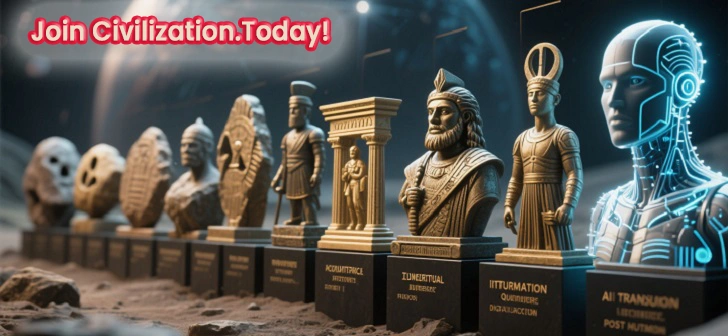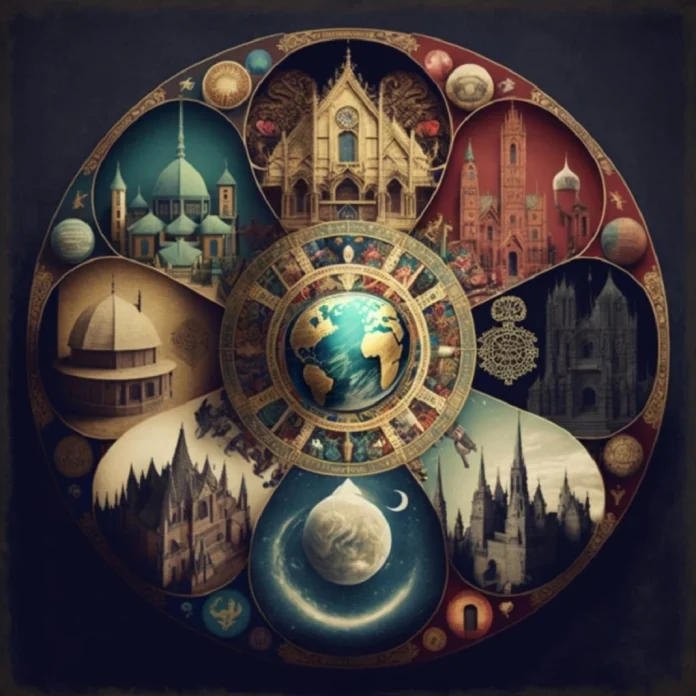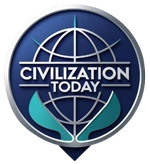From the dawn of human history, belief systems have shaped the rise and fall of societies. Religion in civilization has always been more than a private matter of faith—it was the glue that held communities together, the lawgiver that defined morality, and at times, the spark that ignited wars. To understand the story of humanity, one cannot overlook the profound role religion has played in both uniting people under shared values and dividing them through conflicting ideologies.
The Birth of Religion in Civilization
Archaeological evidence suggests that early humans practiced forms of spiritual rituals as far back as 100,000 years ago. Burial practices, cave paintings, and artifacts indicate that even prehistoric people believed in forces beyond the material world. As agriculture and settlements emerged, religion in civilization became institutionalized. Temples, priests, and sacred texts began to organize spiritual life, giving structure to societies.
The Sumerians, for example, built ziggurats to honor their gods, blending religion with politics. Ancient Egypt unified its people under the worship of deities like Ra and Osiris, intertwining religion with the legitimacy of pharaohs. Religion was not merely about worship—it was about power, order, and collective identity.
Religion as a Unifying Force
Religion in civilization has historically been a powerful unifier. Shared beliefs created trust among strangers, encouraging cooperation on massive projects such as the construction of pyramids, cathedrals, and temples. Religious codes such as the Ten Commandments or the Hindu dharma established rules that reduced chaos and strengthened societal bonds.
For instance, Christianity provided a unifying cultural and moral framework for medieval Europe. Likewise, Islam rapidly expanded across the Middle East, North Africa, and beyond, binding diverse peoples under a shared spiritual law. The Buddhist concept of compassion unified entire kingdoms across Asia. Wherever it spread, religion in civilization forged connections that transcended ethnicity, geography, and language.
The Dark Side: Religion as a Source of Division
Yet, religion in civilization has not always been peaceful. Just as faith united people, it also divided them. History is filled with examples of religious conflict, from the Crusades to the Thirty Years’ War. Competing beliefs often fueled rivalries between empires, tribes, and nations.
Even within the same religion, divisions arose. The split between Sunni and Shia Islam, or between Catholicism and Protestantism in Christianity, illustrates how internal disagreements can fracture unity. Religion, when entangled with political power, often magnified divisions rather than resolving them.
Religion and the Legitimization of Power
Throughout history, rulers have used religion in civilization as a tool to justify authority. Pharaohs claimed to be gods, medieval kings ruled by “divine right,” and emperors often styled themselves as chosen by heaven. This alliance between throne and altar was instrumental in maintaining control.
However, it also created tensions. When religious authorities challenged political rulers—such as the papacy versus kings in medieval Europe—conflicts emerged that shaped the trajectory of entire civilizations. Religion, therefore, was not only a belief system but also a battleground for power.
Cross-Cultural Encounters: Religion as Bridge and Barrier
When civilizations met through trade, conquest, or exploration, religion played dual roles. On the Silk Road, Buddhism, Islam, and Christianity spread alongside goods, enriching cultures with new philosophies. Religious exchanges fostered tolerance, hybrid traditions, and even advancements in science and philosophy.
On the other hand, colonialism often imposed foreign religions on indigenous peoples, leading to cultural erasure and conflict. The Spanish conquest of the Americas, for example, was as much about spreading Christianity as it was about political and economic domination. Religion in civilization thus functioned as both a bridge of ideas and a barrier of resistance.
The Transformation of Religion in Modern Civilization
Today, the role of religion in civilization continues to evolve. Secularism in many societies has shifted power away from religious institutions, while globalization has brought unprecedented interfaith interactions. Religion still shapes political debates, cultural identities, and social values, but it must now coexist with scientific knowledge and pluralistic societies.
Movements for interfaith dialogue and religious tolerance show that humanity is learning from history’s lessons. Yet, extremist ideologies and sectarian violence remind us that religion can still divide as much as it unites.
The Enduring Legacy of Religion in Civilization
Despite modernization, religion remains deeply embedded in the story of civilization. It influences art, literature, architecture, and ethics. Cathedrals, mosques, temples, and shrines stand as testaments to humanity’s quest for meaning. Sacred texts continue to inspire billions, shaping moral frameworks across cultures.
The legacy of religion in civilization is therefore paradoxical: it gave birth to compassion, charity, and unity, but also to persecution, division, and war. To understand our shared past—and to navigate our collective future—we must acknowledge both sides of this history.
Conclusion
Religion in civilization is not just a historical phenomenon but an ongoing force that continues to shape humanity. It has unified people under common values, inspired monumental achievements, and provided meaning to countless lives. At the same time, it has divided nations, justified wars, and polarized societies.
The challenge of the modern world is to embrace the unifying aspects of religion while addressing its divisive tendencies. Only then can civilizations move forward with a balance of faith, reason, and shared humanity.



